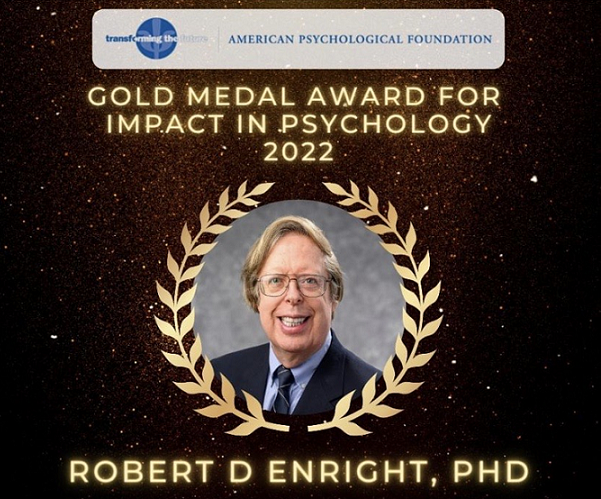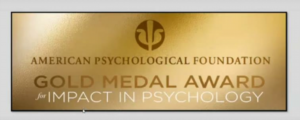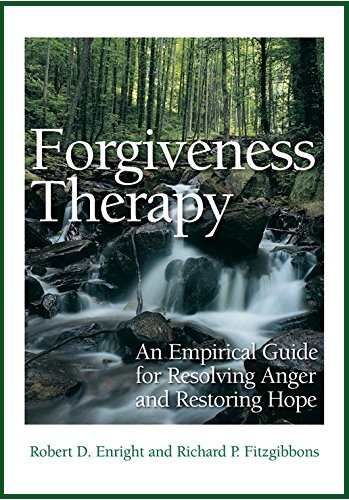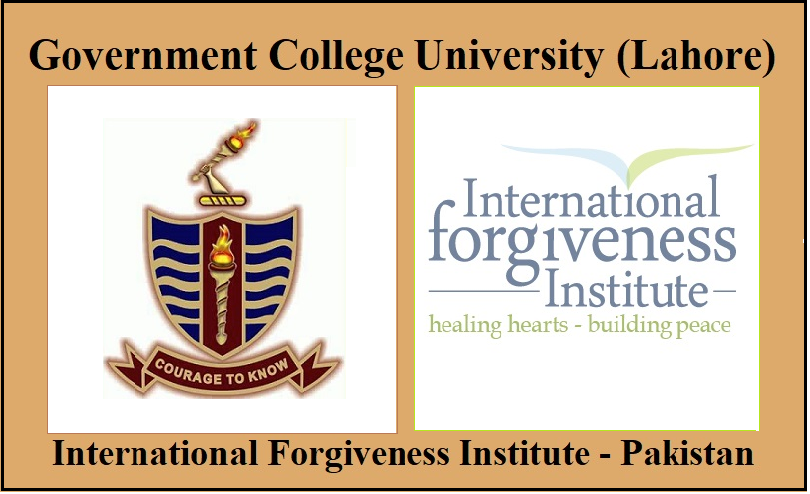Tagged: “The Forgiving Life”
Some people forgive better than other people. Is this because of certain neurotransmitters in the brain?
I have an essay at Psychology Today entitled, “Does Your Brain Cause You to Forgive?” My answer is no. Instead, I think it is continual practice of the moral virtue of forgiveness that makes certain people excellent in the forgiveness process. Here is a link to that Psychology Today essay:
Does Your Brain Cause You to Forgive?
When I examine the effects of the injustice that happened to me, I get angry at myself for not realizing the connection all these years between what happened to me back then and my built-up anger and fatigue now. Should I forgive myself for missing all of this?
We forgive ourselves when we do moral wrong, when we break our own standards. It seems to me that you were not acting unjustly at all. You simply did not know the connection between the past hurts against you and your challenges at present. This is the case for very many people because forgiveness, current effects, and past trauma rarely are discussed in contemporary society. I recommend that you practice gentleness toward yourself rather than forgive yourself.
After all, would you forgive yourself for not knowing other issues that are hidden from most people in society? In the 1940’s for example, people did not have the precise knowledge of the connection between cigarette smoking and certain health problems. Those people who were smoking back then were not saying to themselves, “The science shows that I am harming myself in very specific ways. I will continue to smoke anyway.” This would not have been the case for a very large part of the population.
It is similar now with the links among past trauma, current effects such as anger and fatigue, and forgiveness. Not knowing is not necessarily an injustice and so I think you can go in peace……and start the forgiveness process now if you are ready. In some cases, we deny reality and choose to not know what is good. This issue is different from yours and this example would suggest that self-forgiveness would be appropriate as a person keeps pushing away what should be known as morally good.
“Forgiveness Pioneer” Wins Inaugural Gold Medal Award for Impact in Psychology
The scientific application of forgiveness, forgiveness education, and forgiveness therapy is being singled out for its “game-changing impact on the field of psychology” by the country’s largest and oldest organization of doctoral-level psychologists.
The American Psychological Foundation (APF), the grant-making arm of the American Psychological Association (APA), has just announced the winner of its first-ever Gold Medal Award for Impact in Psychology—Dr. Robert Enright, a professor of Educational Psychology at the University of Wisconsin-Madison, and founder of the International Forgiveness Institute.
Classified as one of psychology’s highest honors, the award “recognizes a psychologist whose work has had a game-changing impact on the field of psychology,” according to APF board president Terence M. Keane, PhD. He added that the new award acknowledges “a psychologist’s body of work that has been impactful, innovative, and transformational.”
Prior to this year, the award was called the Gold Medal Award for Life Achievement and it has been bestowed on exceptional psychological innovators by the APF for the past 65 years. Previous winners have included B. F. Skinner (the 1971 winner who developed behavior analysis), Harry Harlow (the 1973 winner and a UW-Madison psychologist like Dr. Enright), Rollo May (1987), Mary Ainsworth (1998), and Albert Bandura (2006).
“For the APA and the APF to position forgiveness alongside the creative achievements of those giants in the field of psychology is truly a profound pronouncement,” Dr. Enright said after learning of his recognition.
 As a grant making foundation, the APF helps fund psychologists and students worldwide who are using psychology to address major issues and improve lives. The APA has more than 133,000 members—doctoral-level researchers, educators, clinicians, consultants, and students (associate members). Combined, the two organizations have more than 500 staff members who focus on providing services to psychologists like Dr. Enright who have dedicated their lives to improving the mental health and welfare of others.
As a grant making foundation, the APF helps fund psychologists and students worldwide who are using psychology to address major issues and improve lives. The APA has more than 133,000 members—doctoral-level researchers, educators, clinicians, consultants, and students (associate members). Combined, the two organizations have more than 500 staff members who focus on providing services to psychologists like Dr. Enright who have dedicated their lives to improving the mental health and welfare of others.
Dr. Enright, a licensed psychologist, has devoted 37 years to the scientific study of forgiveness. As the unquestioned pioneer in the field of forgiveness, Dr. Enright published the first social scientific journal article on person-to-person forgiveness and the first cross-cultural studies of interpersonal forgiveness. He also pioneered forgiveness therapy and developed an early intervention to promote forgiveness–the 20-step “Process Model of Forgiving.”
The Enright Forgiveness Inventory (EFI), an objective measure of the degree to which research participants forgive another who has been unjust and hurtful toward them, is now used by researchers around the world. The Enright Forgiveness Inventory for Children (EFI-C), the Enright Self-Forgiveness Inventory (ESF-I), and the Enright Group Forgiveness Inventory (EGFI) have all become standard research tools known simply by their abbreviations.
Dr. Enright also pioneered the use of forgiveness therapy in clinical practice by developing  interventions that gained critical acclaim with the APA’s publishing in 2015 of Forgiveness Therapy, an instructional manual for clinicians written by Dr. Enright and psychiatrist Richard Fitzgibbons, MD. The two authors were selected in 2019 as recipients of the prestigious Expanded Reason Award presented by the University Francisco de Vitoria (Madrid, Spain) in collaboration with the Vatican Foundation Joseph Ratzinger/Benedict XVI (Rome, Italy) “to recognize and encourage innovation in scientific research and academic programs.”
interventions that gained critical acclaim with the APA’s publishing in 2015 of Forgiveness Therapy, an instructional manual for clinicians written by Dr. Enright and psychiatrist Richard Fitzgibbons, MD. The two authors were selected in 2019 as recipients of the prestigious Expanded Reason Award presented by the University Francisco de Vitoria (Madrid, Spain) in collaboration with the Vatican Foundation Joseph Ratzinger/Benedict XVI (Rome, Italy) “to recognize and encourage innovation in scientific research and academic programs.”
Dr. Enright’s ambitious approach to forgiveness education included the development of 14 Forgiveness Education Curriculum Guides for students in grades Pre-K through 12th. Through stories, children learn about the five moral qualities most important to forgiving another person–inherent worth, moral love, kindness, respect and generosity—and eventually, how they themselves can become a forgiving person.
A just-completed meta-analysis by University of Wisconsin-Madison researchers involving more than 1,500 students in 10 countries shows that students enrolled in Forgiveness Education Programs demonstrated reduced anger and increased forgiveness toward those who have hurt them. Those forgiveness guide lesson plans, distributed through the IFI, have been requested by educators in more than 30 countries and contentious regions around the world.
 Adding to its forgiveness education agreements with many of those countries, the IFI’s newest Branch Office is IFI-Pakistan, a partnership with the Government College University Lahore, Lahore, Pakistan–the first in that country and in Southern Asia. In Greece the IFI has trained more than 600 grade school instructors in the past 8 years who are now teaching forgiveness to more than 6,000 Greek students.
Adding to its forgiveness education agreements with many of those countries, the IFI’s newest Branch Office is IFI-Pakistan, a partnership with the Government College University Lahore, Lahore, Pakistan–the first in that country and in Southern Asia. In Greece the IFI has trained more than 600 grade school instructors in the past 8 years who are now teaching forgiveness to more than 6,000 Greek students.
“Although the virtue of forgiveness has made astronomical strides in the past few decades, we are just on the edge of what it can offer us for the future,” Dr. Enright says. “Forgiveness must have a seat at the peace-keeping and peace-making table.”
According to Dr. Enright, his body of work has clearly demonstrated that as people forgive, they become less angry, less depressed, less anxious, and more hopeful of their future. In other words, people become more peaceful within themselves, making the possibility of peace with others more likely.
Dr. Enright has outlined his grass-roots approach to peace through a variety of forums beginning with his 2010 article “Forgiveness Education as a Path to Peace,” his 2014 address to the United Nations Population Fund “Forgiveness as a Peace Tool,” and his recent series of 3 essays on peace published on the Psychology Today digital website.
In 2015, Dr. Enright accompanied Eva Mozes Kor, a survivor of the Holocaust, on a series of US radio interviews to promote peace through forgiveness. His peace initiatives have earned him peace educator awards including being named a Paul Harris Fellow by Rotary International in 2016.
Time magazine has called Dr. Enright “the forgiveness trailblazer.” The Los Angeles Times said Dr. Enright is “the guru of what many are calling a new science of forgiveness.” The Christian Science Monitor called Dr. Enright “the father of forgiveness research.”
As the recipient of the 2022 Gold Medal Award for Impact in Psychology, Dr. Enright will be honored during APA 2022–the annual American Psychological Association convention on August 5th in Minneapolis, MN. He will receive a gold medal plaque and a modest honorarium during the APF Friends of the Foundation reception.
The one I need to forgive is deceased. What good is it to forgive someone who has died?
While the other cannot benefit in any direct, physical way from your forgiveness, there are two areas of benefit for your consideration: 1) You may be able to create a positive (and truthful) view of that person, preserving a more dignified reputation for this person than might have been the case if you speak negatively about the person to others; and 2) you, yourself, as the forgiver, may find that your resentment melts and so you feel better upon forgiving.
The Dark Side of Saying that Self-Forgiveness Has a Dark Side
A recent study by Peetz, Davydenko, and Wohl (2021) concludes that there is a “dark side” to self-forgiveness. They, in fact, use this term three different times in the journal article. The point of this blog is to challenge their view and to show that the statement is an over-reaction to their data.
Here is what they did in the study: They asked people who were entering a grocery store to fill out a self-forgiveness scale specifically regarding over-spending in the past and a scale that assesses beliefs about whether people can change their abilities or not. For the latter variable, the researchers were interested, for example, in whether participants believed they could or could not change their spending habits if they overspent.
Those who believe that people, including themselves, can change unwanted habits are called incrementalists. This issue of incrementalism is important in this research because the authors were hypothesizing that if people think that they cannot change their behavior of over-spending (they are not incrementalists), then they likely will be more cautious in how they spend relative to the incrementalists who might take the cavalier attitude that “I can always change bad behavior.”
So, the expectation in the research was this: Those who over-spent in the past and who now have forgiven themselves, and who think they can change, will have problematic spending on this new shopping venture. This is what the authors called—three times—the “dark side” of self-forgiveness.
So, then, what did they find? In Study 1, with over 100 participants, the statistical results were not significant. The findings approached significance in that those who forgave themselves and who are incrementalists (believing that they can change and so over-spending should not be that big of a deal) tended to spend more, but again it was not statistically significant.
In Study 2, they did a larger study with over 200 participants and found the exact same thing. There was no statistical significance for self-forgivers, who are incrementalists, to over-spend.
Upon their third try, they looked at spending relative to what was the pre-determined budget prior to shopping. Here they did find that those who self-forgave for over-spending in the past and who were incrementalists (thinking they could change and so the over-spending probably is not a big deal) did spend more than those who kept themselves in check because they were not incrementalists (in other words, they did not trust themselves to change spending habits as much as people with the incremental beliefs that they could change).
Yet, here is the bottom-line critique of this work: The authors never assessed: 1) whether or not the participants who spent more than they had planned had way-overdone the spending; 2) whether or not the spending was harmful to their budget or to the family’s budget; and 3) whether or not any true economic injustice was done by the purchase.
The average reported total amount spent by participants in Study 2 was $74.06. For the majority of people, this hardly would destroy the family finances. In other words, was this kind of spending harmful? Self-forgiveness takes place in the context of harm, of unjust treatment, often toward others, and is seen by the self-forgiver as unjust. Was this kind of spending in this study unjust? The authors did not ask the participants if they thought this was the case.
So, in the final analysis, we see that in one of three statistical tries, participants, who formerly have self-forgiven for over-spending and who think they can change their behavior, spend perhaps a little more than those who think they cannot change. How big is this difference and how serious is it for the family? Given the statistical failure in two out of three tries and given the small sum spent on the average ($74.06), it seems to me that calling this a “dark side” of self-forgiveness is not warranted, at least for now. Do you see how there is a “dark side” to exaggerating conclusions about the dark side of forgiveness?
Robert Peetz, J., Davydenko, M., & Wohl, M. J. A. (2021). The cost of self-forgiveness: Incremental theorists spend more money after forgiving the self for past overspending. Personality and Individual Differences, 179, 110902.



